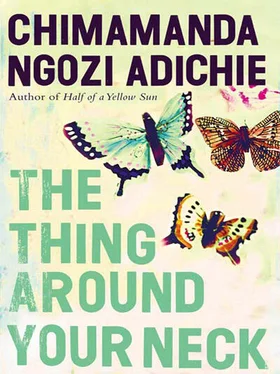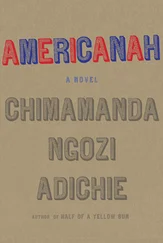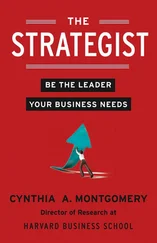You said no the following four days to going out with him, because you were uncomfortable with the way he looked at your face, that intense, consuming way he looked at your face that made you say goodbye to him but also made you reluctant to walk away. And then, the fifth night, you panicked when he was not standing at the door after your shift. You prayed for the first time in a long time and when he came up behind you and said hey, you said yes, you would go out with him, even before he asked. You were scared he would not ask again.
The next day, he took you to dinner at Chang’s and your fortune cookie had two strips of paper. Both of them were blank.
You knew you had become comfortable when you told him that you watched Jeopardy on the restaurant TV and that you rooted for the following, in this order: women of color, black men, and white women, before, finally, white men — which meant you never rooted for white men. He laughed and told you he was used to not being rooted for, his mother taught women’s studies.
And you knew you had become close when you told him that your father was really not a schoolteacher in Lagos, that he was a junior driver for a construction company. And you told him about that day in Lagos traffic in the rickety Peugeot 504 your father drove; it was raining and your seat was wet because of the rust-eaten hole in the roof. The traffic was heavy, the traffic was always heavy in Lagos, and when it rained it was chaos. The roads became muddy ponds and cars got stuck and some of your cousins went out and made some money pushing the cars out. The rain, the swampiness, you thought, made your father step on the brakes too late that day. You heard the bump before you felt it. The car your father rammed into was wide, foreign, and dark green, with golden headlights like the eyes of a leopard. Your father started to cry and beg even before he got out of the car and laid himself flat on the road, causing much blowing of horns. Sorry sir, sorry sir, he chanted. If you sell me and my family, you cannot buy even one tire on your car. Sorry sir.
The Big Man seated at the back did not come out, but his driver did, examining the damage, looking at your father’s sprawled form from the corner of his eye as though the pleading was like pornography, a performance he was ashamed to admit he enjoyed. At last he let your father go. Waved him away. The other cars’ horns blew and drivers cursed. When your father came back into the car, you refused to look at him because he was just like the pigs that wallowed in the marshes around the market. Your father looked like nsi . Shit.
After you told him this, he pursed his lips and held your hand and said he understood how you felt. You shook your hand free, suddenly annoyed, because he thought the world was, or ought to be, full of people like him. You told him there was nothing to understand, it was just the way it was.
He found the African store in the Hartford yellow pages and drove you there. Because of the way he walked around with familiarity, tilting the bottle of palm wine to see how much sediment it had, the Ghanaian store owner asked him if he was African, like the white Kenyans or South Africans, and he said yes, but he’d been in America for a long time. He looked pleased that the store owner had believed him. You cooked that evening with the things you had bought, and after he ate garri and onugbu soup, he threw up in your sink. You didn’t mind, though, because now you would be able to cook onugbu soup with meat.
He didn’t eat meat because he thought it was wrong the way they killed animals; he said they released fear toxins into the animals and the fear toxins made people paranoid. Back home, the meat pieces you ate, when there was meat, were the size of half your finger. But you did not tell him that. You did not tell him either that the dawadawa cubes your mother cooked everything with, because curry and thyme were too expensive, had MSG, were MSG. He said MSG caused cancer, it was the reason he liked Chang’s; Chang didn’t cook with MSG.
Once, at Chang’s, he told the waiter he had recently visited Shanghai, that he spoke some Mandarin. The waiter warmed up and told him what soup was best and then asked him, “You have girlfriend in Shanghai now?” And he smiled and said nothing.
You lost your appetite, the region deep in your chest felt clogged. That night, you didn’t moan when he was inside you, you bit your lips and pretended that you didn’t come because you knew he would worry. Later you told him why you were upset, that even though you went to Chang’s so often together, even though you had kissed just before the menus came, the Chinese man had assumed you could not possibly be his girlfriend, and he had smiled and said nothing. Before he apologized, he gazed at you blankly and you knew that he did not understand.
He bought you presents and when you objected about the cost, he said his grandfather in Boston had been wealthy but hastily added that the old man had given a lot away and so the trust fund he had wasn’t huge. His presents mystified you. A fist-size glass ball that you shook to watch a tiny, shapely doll in pink spin around. A shiny rock whose surface took on the color of whatever touched it. An expensive scarf hand-painted in Mexico. Finally you told him, your voice stretched in irony, that in your life presents were always useful. The rock, for instance, would work if you could grind things with it. He laughed long and hard but you did not laugh. You realized that in his life, he could buy presents that were just presents and nothing else, nothing useful. When he started to buy you shoes and clothes and books, you asked him not to, you didn’t want any presents at all. He bought them anyway and you kept them for your cousins and uncles and aunts, for when you would one day be able to visit home, even though you did not know how you could ever afford a ticket and your rent. He said he really wanted to see Nigeria and he could pay for you both to go. You did not want him to pay for you to visit home. You did not want him to go to Nigeria, to add it to the list of countries where he went to gawk at the lives of poor people who could never gawk back at his life. You told him this on a sunny day, when he took you to see Long Island Sound, and the two of you argued, your voices raised as you walked along the calm water. He said you were wrong to call him self-righteous. You said he was wrong to call only the poor Indians in Bombay the real Indians. Did it mean he wasn’t a real American, since he was not like the poor fat people you and he had seen in Hartford? He hurried ahead of you, his upper body bare and pale, his flip-flops raising bits of sand, but then he came back and held out his hand for yours. You made up and made love and ran your hands through each other’s hair, his soft and yellow like the swinging tassels of growing corn, yours dark and bouncy like the filling of a pillow. He had got too much sun and his skin turned the color of a ripe watermelon and you kissed his back before you rubbed lotion on it.
The thing that wrapped itself around your neck, that nearly choked you before you fell asleep, started to loosen, to let go.
You knew by people’s reactions that you two were abnormal — the way the nasty ones were too nasty and the nice ones too nice. The old white men and women who muttered and glared at him, the black men who shook their heads at you, the black women whose pitying eyes bemoaned your lack of self-esteem, your self-loathing. Or the black women who smiled swift solidarity smiles; the black men who tried too hard to forgive you, saying a too-obvious hi to him; the white men and women who said “What a good-looking pair” too brightly, too loudly, as though to prove their own open-mindedness to themselves.
Читать дальше











